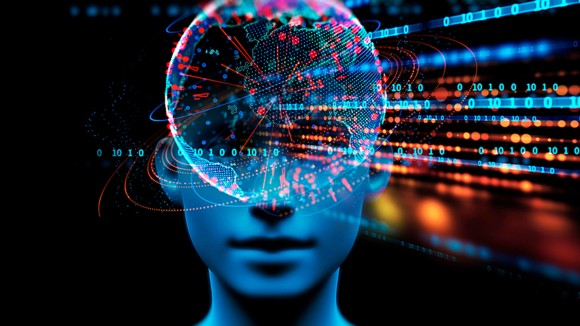INTRODUCTION
The world of tech is flooded with talk of Artificial Intelligence (AI), and software developers are right in the center of it all. With AI rapidly evolving, there’s a natural concern that it might render developers obsolete. Researchers at the US Department of Energy suggest that by 2040, advancements in AI, machine learning, and code generation could lead to machines writing most of the code. This paints a scary picture for developers. However, a survey by Evans Data Corporation reveals a more nuanced perspective. While nearly 30% of developers fear being replaced by AI, the majority view it differently. However, AI is unlikely to replace developers entirely. In fact, over the next five years, AI is poised to become a powerful collaborator, supercharging a developer’s skillset and fundamentally changing how software is built.
In this blog post, we’ll explore how the future with AI looks like and how will take on repetitive tasks, freeing up developers to focus on the creative and strategic aspects of coding. We’ll also discuss the new skills that will be in high demand for developers who want to thrive in this AI-powered landscape.
Essential Skills for Developers in the Age of AI
To thrive in this new landscape, developers will need to cultivate a unique blend of expertise. Here are some key areas to focus on:
- AI Fundamentals: Understanding core machine learning (ML) concepts, data science principles, and deep learning techniques will be essential. Familiarity with frameworks like TensorFlow and PyTorch will be valuable assets.
- Natural Language Processing (NLP): Expertise in NLP empowers developers to design systems that can understand and process human language. Knowledge of libraries like NLTK and spaCy will prove beneficial.
- Data Engineering and Management: Working with AI often involves handling massive datasets. Developers will need to master data engineering techniques, data cleaning methods, and understand database management for efficient processing.
- Software Development Basics: Strong programming skills, software design principles, and fluency in languages like Python, Java, or C++ remain crucial. Familiarity with version control systems (Git) and collaborative development tools is equally important.
- Ethical Considerations: As AI becomes more integrated, developers must foster ethical principles like fairness, transparency, privacy, and bias mitigation in their creations.
- Domain Expertise and Problem-Solving: Understanding the specific challenges and requirements of different industries (healthcare, finance, etc.) will be crucial. Strong problem-solving skills and critical thinking are essential for crafting effective AI solutions.
- Technical Debt Management: The ability to identify, prioritize, and manage technical debt is essential for ensuring software can evolve and grow without significant rework.
- Lifelong Learning: The field of AI is constantly in flux. Developers must embrace lifelong learning, keeping pace with the latest advancements through online courses, conferences, and open-source projects.
Why AI Won’t Replace Developers?
While AI automates tasks and impacts various industries, it’s unlikely to fully replace software engineers. Here’s why:
- Complex Problem-Solving: Conceptualizing, architecting, and designing intricate software systems require human expertise that AI cannot replicate entirely.
- Creativity and Innovation: Software engineering thrives on human creativity in designing user interfaces, crafting unique user experiences, and developing novel algorithms. AI currently lacks the ability to match human ingenuity.
- Ethical Considerations: Ensuring software adheres to ethical standards and mitigates bias requires human judgment and decision-making. AI systems can perpetuate biases if not carefully designed.
- Adaptability and Context: Software engineers possess the ability to adapt to changing requirements and understand complex contexts. AI , while adept at data analysis, struggles with these nuanced aspects.
- Collaboration and Communication: Effective teamwork, communication, and understanding stakeholder needs are vital for successful software development. Human software engineers bring the interpersonal skills and domain expertise to bridge these gaps.
How the Rise of AI Will Reshape the Future Developer in the Next 5 Years?
The software development landscape is undergoing a radical transformation fueled by the ever-evolving field of Artificial Intelligence (AI). These intelligent machines are no longer confined to science fiction; they’re actively shaping the way we build software. Let’s delve into how AI is changing the game for developers in the next five years:
- Automation
Repetitive tasks that once dominated a developer’s day are becoming a thing of the past. AI-powered tools are stepping up to automate various aspects of software development, freeing developers to focus on more strategic and creative endeavors. Imagine AI assistants generating code snippets, streamlining code refactoring, and even assisting in bug detection and fixing! This translates to significant gains in productivity and efficiency, allowing developers to tackle complex problems with renewed focus.
- Testing
The quest for flawless software gets a major boost from AI. AI-powered testing tools can meticulously analyze code, identify potential vulnerabilities, and even automatically generate test cases. But that’s not all. Machine learning takes things a step further by learning from past test results. This allows it to predict areas of code with a higher likelihood of bugs, enabling developers to nip issues in the bud during the early stages of development. The end result? Software that’s more robust and reliable.
- Natural Language Processing (NLP)
A subfield of AI called Natural Language Processing (NLP) is revolutionizing how humans interact with software. NLP allows machines to understand and process human language with increasing sophistication. This has led to the development of chatbots, virtual assistants, and voice-activated interfaces. These advancements not only enhance user experiences but also open up exciting new avenues for software development. Imagine building software that users can interact with in a natural and intuitive way, using plain old language!
- DevOps and Continuous Integration:
One of the most significant impacts of AI on software development is its contribution to the evolution of DevOps practices and Continuous Integration/Continuous Delivery (CI/CD) pipelines. AI techniques, such as machine learning algorithms, are revolutionizing how developers manage and deploy code changes. By analyzing vast amounts of data, including code changes, test results, and production metrics, AI can provide invaluable insights into performance, quality, and potential issues. This not only streamlines the software development lifecycle but also enhances deployment processes and overall software quality. Developers can now leverage AI-powered tools to automate repetitive tasks, identify bottlenecks, and optimize workflows, thereby accelerating the pace of innovation.
- Customization and Smart Suggestions
The massive amounts of data generated today hold immense potential. AI algorithms are adept at analyzing this data to make intelligent recommendations and personalize software experiences. For instance, AI-powered recommender systems in e-commerce platforms suggest products based on your preferences and browsing history. Similarly, AI can personalize user interfaces, content, and features based on individual user behavior, creating a truly customized experience for each user.
- Data-Driven Decisions
The software development process is becoming increasingly data-driven thanks to AI, particularly the power of machine learning. Machine learning algorithms can analyze vast datasets, identify patterns, and even make predictions. This empowers developers to make informed decisions in various areas, such as predicting user behavior, optimizing software performance, and enhancing security. Imagine using AI to anticipate user needs and proactively build features that address them!
Conclusion
The future of software development is all about teamwork between humans and AI. Together, they can bring about amazing new ideas and make things work better and faster. Developers who keep learning, mix their technical skills with ethical know-how, and work well with others will do great in this new era. As AI keeps getting better, one thing is clear: the future of software development looks bright, and developers will lead the way, using AI to build awesome solutions that change our lives for the better.






Add comment